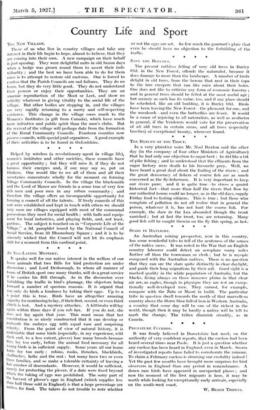As EGG-LAYING MYSTERY.
It speaks well for our native interest in the welfare of our home animals that two Bills for bird protection are under discussion ; and Lord Desborough, to whom all manner of forms of British sport owe many thanks, will do a great service if he carries his Bill through. As in the discussion over forbidding the traffic in bird's plumage, the objectors bring forward a number of specious reasons. It is argued that you only do birds a kindness by taking their eggs. Up to a a point this is true. Birds have an altogether amazing rapacity for continuing to lay, if their first, second, or even third clutch is lost. And a mystery attaches. A kittiwake will lay again within three days if you rob her. If you do not, she does not lay again that year. This must mean that her constitution is so nicely constructed that it can develop or reabsorb the embryo egg with equal ease and surprising celerity. From the point of view of natural history, it is undeniable that some birds (especially, in my experience, wild duck and, to a less extent, plover) lose many broods because they lay too early, before the animal food necessary for all Young birds is in sufficient supply. Some years all our home birds lay too early ; robins, rooks, thrushes, blackbirds, rhallinche.s, larks and the rest ; but many have two or even three families, and so make a tolerable certainty of leaving a fair number of descendants. However, it would be sufficient, merely for protecting the plover, if a date were fixed beyond which the taking of eggs was prohibited. The sorry part of !1.'e harvest of plover's eggs in England (which supplies less than half those sold in England) is that a large percentage are useless •for food. The takers do not trouble to note whether
or not the eggs are set. So few reach the gourmet's plate that even he should have no objection to the forbidding of the traffic.






























































 Previous page
Previous page